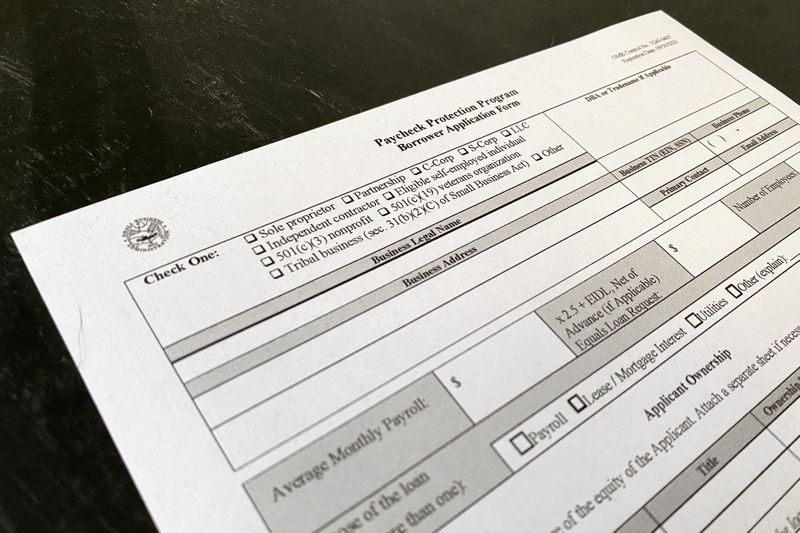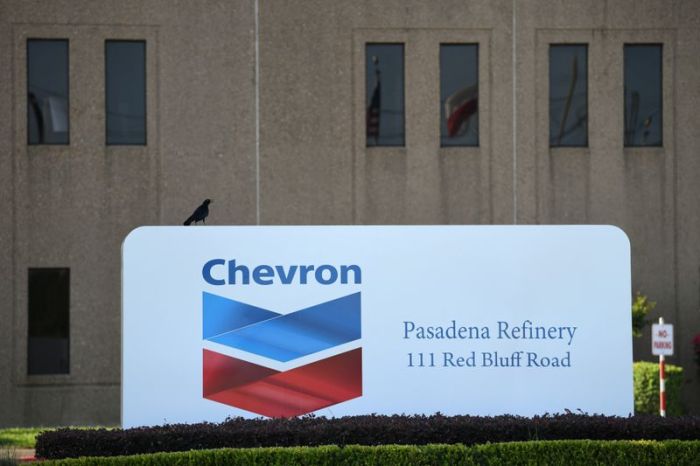BOSTON (Reuters) – R.V. Kuhns & Associates Inc, an investment consulting firm that advises on $2.5 trillion in retirement plans and other assets, sent a message of confidence in a Securities and Exchange Commission filing this spring, as COVID-19 wreaked destruction across America’s economy. The firm, it said, stood ready to “to maintain all the services we provide.”
The Portland, Oregon-based company, known as RVK, disclosed in the filing that it had been helped by some extra cash: a forgivable loan of between $2 million and $5 million from the Small Business Administration’s pandemic relief fund.
It was not alone in the world of big-money consultancy. RVK is one of at least 40 consultants to retirement plans and other institutional investors that were approved for loans totaling as much as $37 million to support staffing levels and pay rent, according to a Reuters review of government data released this month. It wasn’t always clear why the consultants found it necessary to apply, given incomes that are typically steady and based on client fees from long-term contracts to design portfolios or provide administrative services.
Graphic: Paycheck Protection Program – https://graphics.reuters.com/USA-ECONOMY/PPP/xlbvgodxbvq/
RVK’s president, James Voytko, told Reuters his firm took the government assistance because its nearly 200 clients – which include major public pension plans and charitable endowments – were “under significant financial pressure” and sought increased support from the firm, whose staff has worked unusually long hours.
The loan to RVK was meant to protect 119 jobs at the firm, according to the government data. Voytko said in an e-mail that RVK had followed program guidelines and maintained staffing levels, though he declined to answer written questions about the extent to which the coronavirus pandemic had impacted the company’s finances.
He confirmed that almost all of RVK’s revenue comes from fixed annual retainer fees. But, he said, “while the assets under advisement are large, our firm is not compensated via an asset based fee.” And, he added, “we do not have a well financed parent with access to operating capital from many sources.”
Kyle Herrig, president of Washington, D.C.-based government watchdog group Accountable.US, told Reuters that investment consultants taking the taxpayer-funded loans was an “egregious” example of how the program had too often benefited relatively healthy companies, especially during its quickly-depleted first funding round.
The Small Business Administration and Treasury Department did not respond to an email seeking comment about the loans from the Paycheck Protection Program (PPP), which they jointly administered.
Graphic: Industry jobs and PPP loans – https://graphics.reuters.com/HEALTH-CORONAVIRUS/PPP/rlgpdlqknpo/
Another large consulting firm, Meketa Investment Group Inc, told Reuters that taking a PPP loan, listed as between $2 million and $5 million, was a “prudent” step to protect employees and maintain high-level service to clients.
“We believe this and other preemptive steps are the responsible actions of fiduciaries,” given likely future impacts of COVID-19, the firm said in a statement.
Meketa, based near Boston with $1.5 trillion of assets under advisement as of March 31, said in a regulatory filing this June that “we do not believe that we would have been unable to meet any contractual commitment absent our receipt of the loan. However, we believe that the loan was necessary to support our existing operations, including allowing us to maintain full staffing.”
The company’s clients include major state pension plans such as the California Public Employees’ Retirement System and the New York City Employees’ Retirement System, according to public disclosures.
Another company, LeafHouse Financial Group LLC in Austin, Texas, which consulted on $9.6 billion as of December 31, took up to $350,000 in PPP funds in mid-April to protect its 19 staff amid business uncertainty and protections for lost revenue, according to a spokeswoman, Kassandra Hendrix.
Hendrix said LeafHouse had received word from its mostly small business and non-profit clients that they were getting squeezed by a variety of factors, including a plummeting stock market and lower retirement contribution rates.
“We applied for the loan to prepare us to weather this temporary storm and maintain all staffing levels while striving to provide our clients with the best possible service when it is needed most,” she wrote. LeafHouse, she said, typically collects fees of less than 0.05% on assets it advises on.
Other large investment consultants approved for up to $1 million each in PPP loans include Advanced Capital Group Inc, which advises on $23 billion; Pensionmark Financial Group LLC, which advises on $14.7 billion; and Newport Capital Group, which advises on more than $13 billion, according to government data and regulatory filings as of December 31.
Those firms did not respond to e-mails seeking comment. The government data set included only loans that were approved, and did not say which of them were actually disbursed or if they had been returned or forgiven.
Overall, the PPP loans protected about 51 million American jobs, the Trump administration said on July 6 https://www.reuters.com/article/us-health-coronavirus-ppp/u-s-pandemic-aid-program-saved-51-1-million-jobs-but-wealthy-and-connected-also-benefited-idUSKBN2471ZD, as it revealed how $521.4 billion in taxpayer cash was injected into small businesses. But problems in the data have cast doubt on the projection of how many jobs were saved, Reuters has reported https://www.reuters.com/article/us-health-coronavirus-ppp-jobs/trump-administration-says-pandemic-aid-saved-51-million-jobs-did-it-idUSKBN24901U.
(Reporting by Lawrence Delevingne. Editing by Tom Lasseter and Nick Zieminski)

























